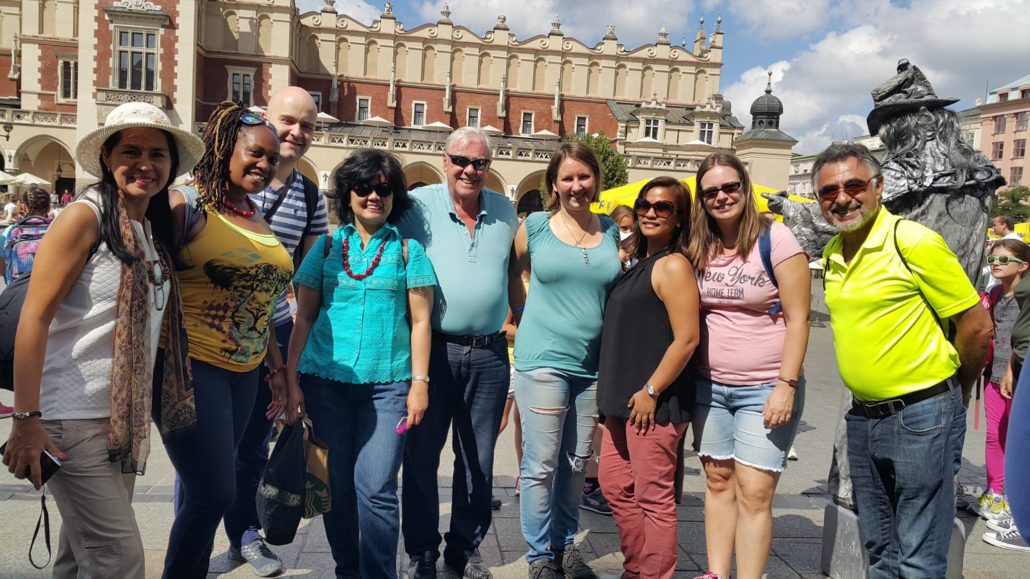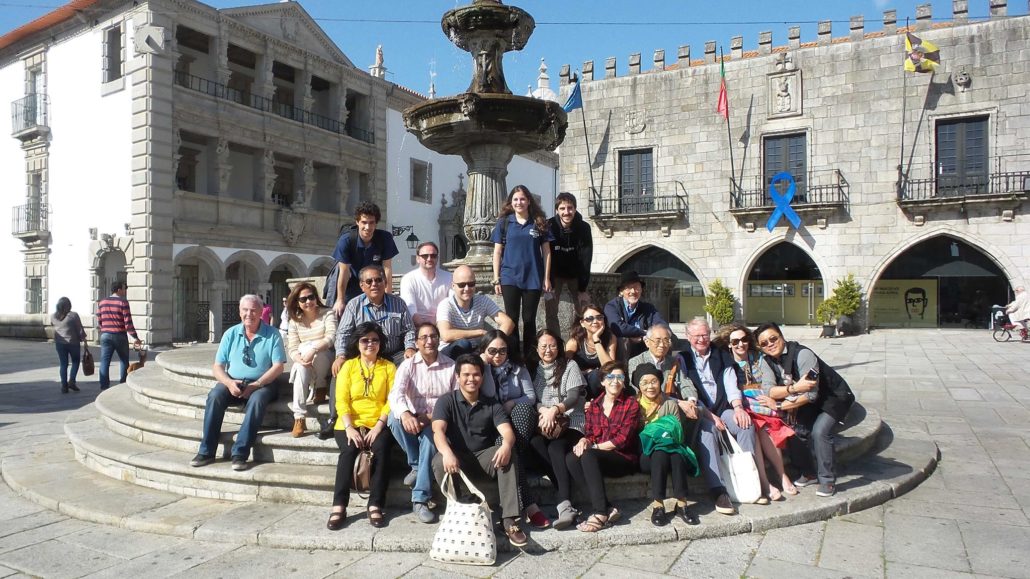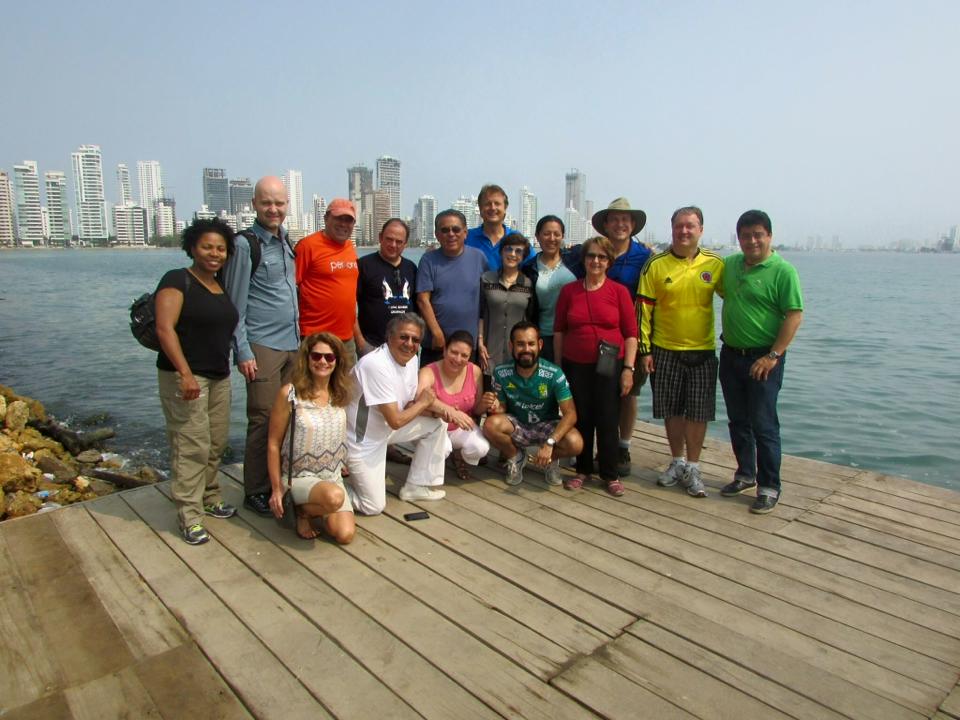There is a buzzword that has been thrown around lately when it comes to a new and better way to travel.
It’s Experiential Travel.
It is defined as a form of travel where people focus on experiencing a country, city or particular place by connecting to its history, people and culture. Skift Magazine, a travel industry magazine, even called 2017 the year of Experiential travel.
AIESECers, however, have known and used this approach to travel for over 70 years. Let’s see what makes this great.
Experiential Travel Starts with an Open Mind
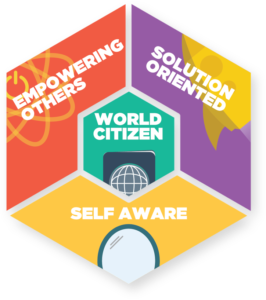 A great travel experience starts with an open mind. It’s like an open door into new experiences, perspectives, and points of view. An open mind is also hard to hide. It radiates positive energy which makes it easier to connect with strangers. Deep inside, our intuition helps us identify those who come with an open mind and an open heart – we are automatically attracted to them.
A great travel experience starts with an open mind. It’s like an open door into new experiences, perspectives, and points of view. An open mind is also hard to hide. It radiates positive energy which makes it easier to connect with strangers. Deep inside, our intuition helps us identify those who come with an open mind and an open heart – we are automatically attracted to them.
This is one of the values that attract students to AIESEC and it is reinforced as the members go through the personal development and leadership opportunities the organization provides: leading a local committee, welcoming trainees from other countries or attending international conferences.
An open mind is the essential first step that lays the foundation a traveler can build on.
Local Connections
 Cultures are alive and ever-changing. There are fundamental values which, like strong undercurrents, can be felt across a region as we navigate a society. However, there is tremendous diversity in the ways a culture expresses itself from city to city or from person to person. Each individual is a unique mixture of their cultural background, upbringing and life experiences that shaped them.
Cultures are alive and ever-changing. There are fundamental values which, like strong undercurrents, can be felt across a region as we navigate a society. However, there is tremendous diversity in the ways a culture expresses itself from city to city or from person to person. Each individual is a unique mixture of their cultural background, upbringing and life experiences that shaped them.
This richness of a culture is hard to capture in a book; it has to be experienced.
The best way to experience the real, day to day culture of a place is through its people, not museums nor books. It begins with a genuine connection, the moment when you realize that you have something in common with a stranger. This connection becomes the bridge through which learning and exchange happens, and eventually friendship.
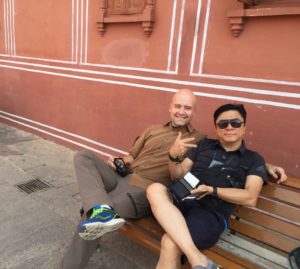 This connection is the bridge which acts as a window deep into the culture, past the facade of tourist traps and stereotypes. The newfound connection can lead us into our host’s life where we can be both participants in and observers of their culture. This is how we may find ourselves being hosted for a family dinner or being taken for a tour of the “real” city, not the tourist hot spots, simply due to the generosity of our host. This is access most tourists never get.
This connection is the bridge which acts as a window deep into the culture, past the facade of tourist traps and stereotypes. The newfound connection can lead us into our host’s life where we can be both participants in and observers of their culture. This is how we may find ourselves being hosted for a family dinner or being taken for a tour of the “real” city, not the tourist hot spots, simply due to the generosity of our host. This is access most tourists never get.
AIESECers know the value of local contacts and often know someone, directly or indirectly, in the country they wish to visit. The AIESECer hospitality, which is enjoyed by countless trainees remains engrained with each Alum and they treat other AIESECers and their friends as if they were friends of their own.
This intermingling of circles of friends is what keeps the AIESEC network strong. These are lifelong connections that pay dividends over the decades through travel connections as well as career and business opportunities.
Take some, leave some.
Travel is not a one-sided affair. It truly is an exchange, where the travelers take away new experiences and souvenirs but also leaves something behind. AIESECers leave footprints in the minds and hearts of the people their encounter.
AIESECers know how to be respectful and be good ambassadors of their culture and nation. They prepare the path for others to follow and bless them with the benefit of the goodwill of a positive first impression.
AIESECers leave behind bridges that other can safely cross.
Conclusion
There are many ways to travel. Sometimes it’s for work, other times it’s for pleasure. It could be a beach holiday or an exploration of historic architecture.
What makes the most memorable travel experiences is the connections with make with local people. We might remember a beautiful vista or architecture, but when our heart is touched by the genuine kindness and hospitality of strangers who open their hearts and homes to share their culture, these memories are much more intense and stay with us our entire life.
With all the available technology, we sometimes forget that travel is foremost about people and remains a firmly human affair.
AIESECers understand this.
What are your tips for amazing travels?


